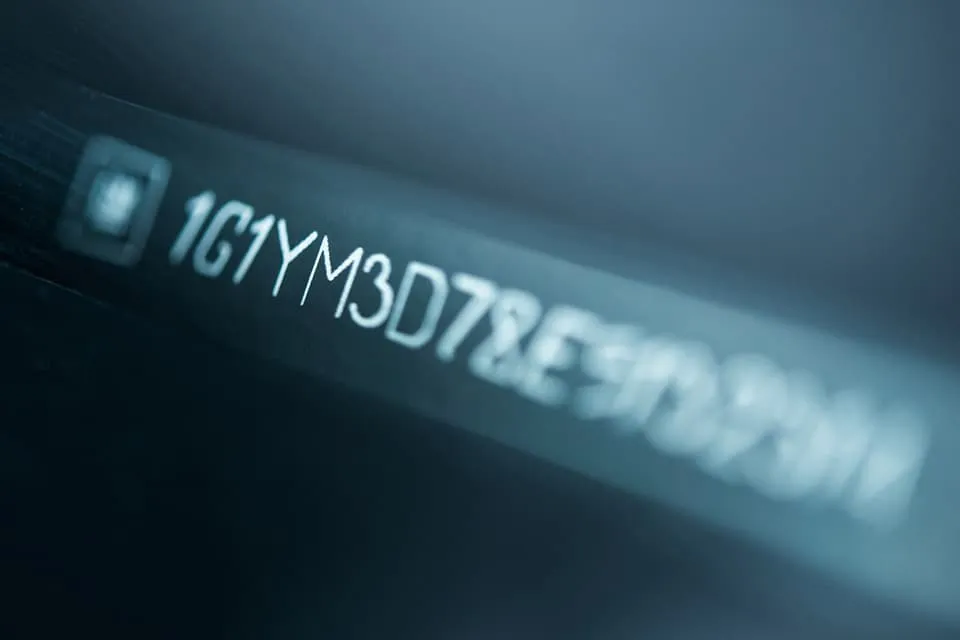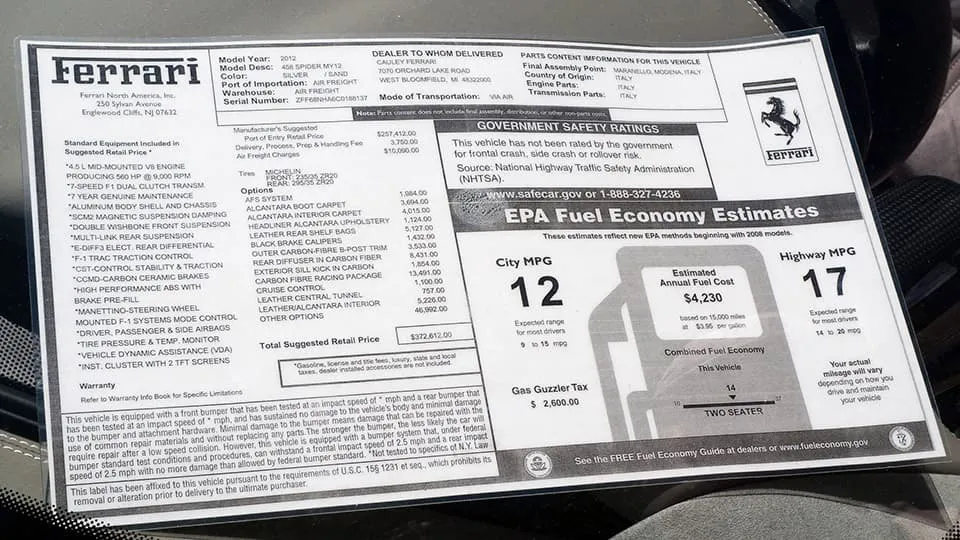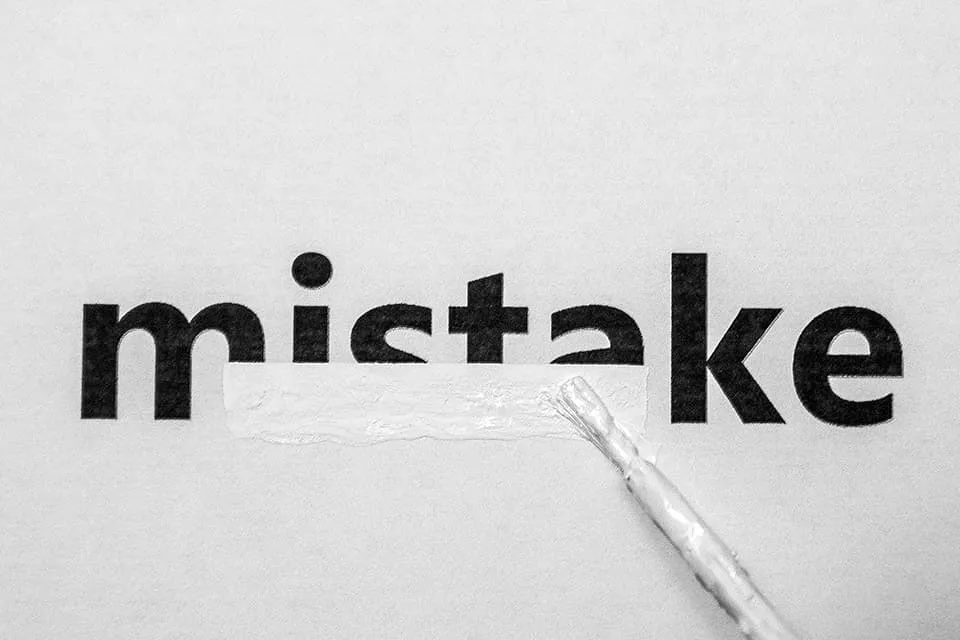How to Get a New VIN Number For a Car

A VIN replacement typically refers to the reissuance or correction of a Vehicle Identification Number due to various reasons such as clerical errors, significant damage, or changes in vehicle specifications. This process may also be connected to reissue VIN branding, where a VIN is reissued along with updated branding information that reflects the vehicle’s revised status or history. It’s important to distinguish this from a reassigned VIN, which may indicate a problematic car history or previous salvage status. In rare instances, a VIN might be replaced, but this practice is uncommon and usually involves a significant time gap, often several decades.
What Is a VIN Number?
A vehicle identification number or VIN is a car's unique character combination designed to distinguish your vehicle from every other registered car on the road. A VIN is a 17-character designation consisting of both numbers and letters, and serves a multitude of purposes. You can find information about your vehicle's manufacturer, factory location, country of origin, location of verification code, as well as the trim, engine size, and car type, all within your 17-character VIN.
Your VIN can be used to find out your vehicle's history among other essential details, so it's always best to know how to find it. To locate your VIN, simply look inside the driver's side dash for a small metal plate; the 17 numbers and letters will be engraved on this plate. If your VIN isn't in this location, check the inside of the driver's door close to the door handle.
Missing/Altered VIN

A car's Vehicle Identification Number (VIN) can become missing or altered under several circumstances, each posing unique challenges for vehicle owners:
- Accidents: Severe collisions can physically damage parts of the car where the VIN is displayed, such as the dashboard or door frame. This damage can result in a missing or partially illegible VIN.
- Theft and Tampering: Thieves may deliberately alter or remove VIN plates to obscure a vehicle's identity, making stolen cars harder to trace. This tampering can also involve creating fake VINs by cloning numbers from legally owned vehicles to conceal the illegal status of stolen cars.
- Rust and Corrosion: In older vehicles, particularly those in environments with significant moisture or salt use, VIN plates can become rusted or corroded over time. This degradation can make the VIN difficult to read or completely obliterate it.
- Fire Damage: Vehicles damaged by fire may have their VINs compromised if the area containing the VIN is burned, leading to partial or total loss of the identification number.
- Restoration and Repair Errors: During the restoration or repair process, especially in less professional setups, VINs can be accidentally covered up or removed when parts are replaced or chassis are repainted.
If your VIN is missing or altered, avoid fixing it yourself - tampering can be illegal. Instead, contact your local DMV or licensing authority. They can inspect the vehicle, verify ownership, and guide you through the process of reissuing or replacing the VIN legally.
What Is a Fake VIN Number?

A fake VIN number is intentionally manufactured or altered to mask the identity of a vehicle, often for illicit purposes. This fraudulent practice is mostly associated with stolen cars, where the original VIN is replaced with a counterfeit one to evade law enforcement detection and make the vehicle appear legitimate. Fake VINs are also used in clone scams, where the vehicle's identity is replicated from a legally registered car to a stolen one, making it difficult for potential buyers and authorities to discern the true history of the vehicle. To avoid falling victim to such fraud, it's crucial to verify the VIN from multiple sources, ensure it matches across different parts of the vehicle, and check the car's history thoroughly before purchasing.
Can You Get a New Vin Number?
Getting a new Vehicle Identification Number (VIN) is not a straightforward process and is typically reserved for specific circumstances. The VIN is a unique code assigned to each vehicle, serving as its fingerprint and providing the basic information about its make, model, year, and manufacturing location. However, the process of getting a new VIN involves stringent regulations and oversight by relevant authorities, such as the Department of Motor Vehicles (DMV) or law enforcement agencies. It often requires thorough documentation, verification of ownership, and inspection of the vehicle to ensure compliance with safety and regulatory standards. Additionally, seeking legal advice or consulting with a tax attorney may be necessary to navigate the complex procedures involved in getting a new VIN.
How to Legally Change VIN Number on Car?
If a vehicle's VIN is damaged due to fire, it is possible to have the VIN reinstated or a new one issued, but the original VIN generally remains the same. When it comes to legally changing the VIN number on a car, there are specific steps and procedures you need to follow to ensure everything is done correctly.
Contact Your Local DMV: Begin by reaching out to your local Department of Motor Vehicles (DMV) or equivalent authority to inquire about the process for changing a VIN number.
Understand the Requirements: Familiarize yourself with the specific requirements and regulations set forth by your state or jurisdiction regarding VIN number changes.
Gather Necessary Documentation: Collect all relevant paperwork and documentation required for the VIN change process. This may include proof of ownership, vehicle registration documents, and any other forms requested by the DMV.
Fill Out Application Forms: Complete any application forms provided by the DMV for changing the VIN number. Ensure all information is accurate and up-to-date before submitting the forms.
Schedule an Inspection: In some cases, the DMV may require a physical inspection of the vehicle to verify its identity and ensure compliance with VIN change regulations. Schedule an inspection appointment if necessary.
Pay Any Applicable Fees: Be prepared to pay any applicable fees associated with the VIN replacement process. These fees may vary depending on your location and the specific circumstances of the new VIN number.
Submit Your Application: Once you have completed all necessary steps and gathered required documentation, submit your application for changing the VIN number to the DMV.
Follow Up: After submitting your application, follow up with the DMV as needed to track the progress of your new VIN number request. Be proactive in addressing any additional requirements or inquiries from the DMV to expedite the process.
Consult with Legal Professionals: If you encounter any complexities or legal questions during the VIN replacement process, consider seeking advice from legal professionals specializing in vehicle regulations. A qualified attorney can offer valuable guidance and ensure compliance with applicable laws.
VIN Number Replacement Frequently Asked Questions
What Is a Fake VIN Number?
A fake VIN number is a fraudulent replication or alteration of a vehicle’s official Vehicle Identification Number, used to disguise the identity or illegal status of a stolen or tampered vehicle.
Do VIN Numbers Change?
Two vehicles that have been built in the same 30 year period can not share the same VIN number. Every VIN is stored in the Motor Vehicle Records database so that the vehicle's history can be monitored and recorded. After 30 years, it is possible for a VIN to be reused, though it will be marked in the database.
What Is a Reassigned VIN?
A reassigned VIN is usually given to a car when it's experienced significant damage due to collision or natural disaster. VIN numbers can also be reassigned after a vehicle is stolen or used to perpetrate a crime. A vehicle with a reassigned VIN may have been moved to a different state or country, and it can be more difficult to find the older records on a car that's been reassigned.
What Is a Dismantled Title?
Similar to a salvage title, a dismantled title indicates a car has been damaged so heavily that it has either:
A) Been declared a total loss by an insurance company or governing body
B) Damaged to the point where repairs would far exceed the vehicle's current value.
A dismantled title can be used to sell a vehicle for its remaining functioning parts. Be wary when purchasing a vehicle with a dismantled title; these cars are usually only good for scrap and may be dangerous to operate on the road.
Can You Register a Dismantled Title?
A vehicle with a dismantled title cannot be registered for use on the road. If you find a vehicle with a dismantled title you believe can be converted into functioning condition, you can apply to have it given a rebuilt title. This requires extensive repairs and inspections by an automotive specialist, along with subsequent approval by the department of licensing or Department of Motor Vehicles.
Where Can I Find Out More Information About My Car?
Dealing with vehicles that have a reissued VIN or dismantled title can be a hassle and prevent you from finding the car you need. Some dealers can be unscrupulous, and private sales can often result in citizens being the victims of fraud. It's always best to take the time to do extensive research before purchasing a vehicle; this will give you the information you need to make a more informed financial decision. Not only can you save money and time, you can also make sure the vehicle you choose is safe for you and your family.
To do this research, you'll usually want to utilize a vehicle history search tool. These tools allow you to find a wide variety of details about the vehicle you intend to purchase, including a VIN check and license plate lookup tool. With this information you can conduct a full car history report and see if the dealer is being honest about their vehicle.
FREE Vehicle Search
- Accidents
- Problem Checks
- Title Records
- Recalls
- Values
- Specs
-
InfoPay, Inc. (dba GoodCar) is an Approved NMVTIS Data Provider
-
-






























